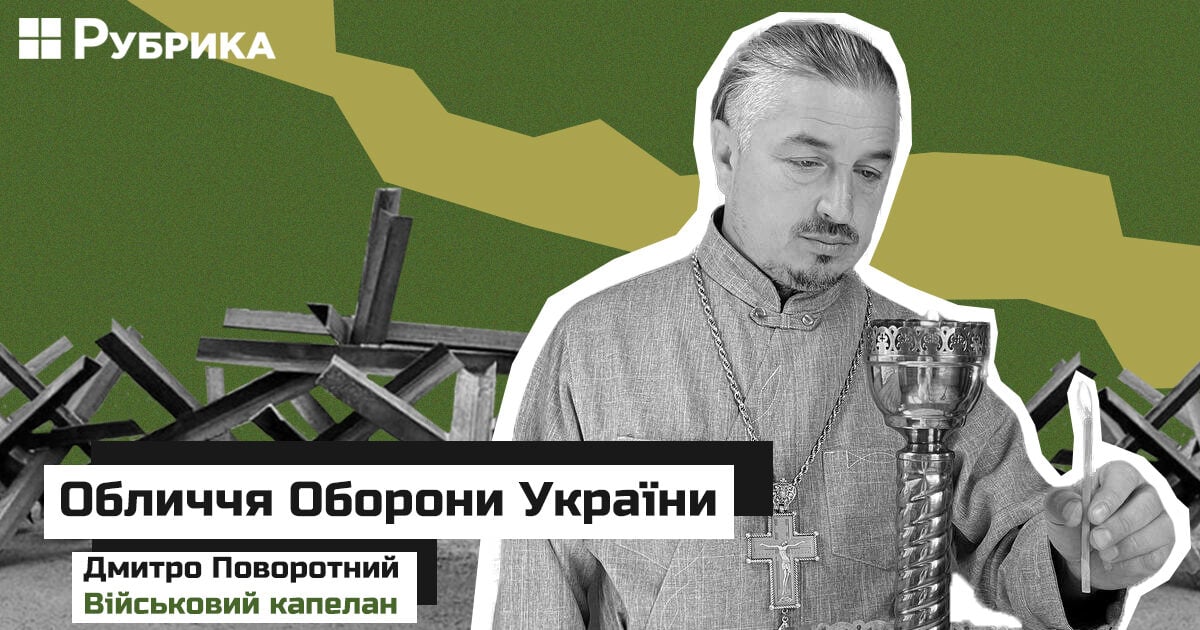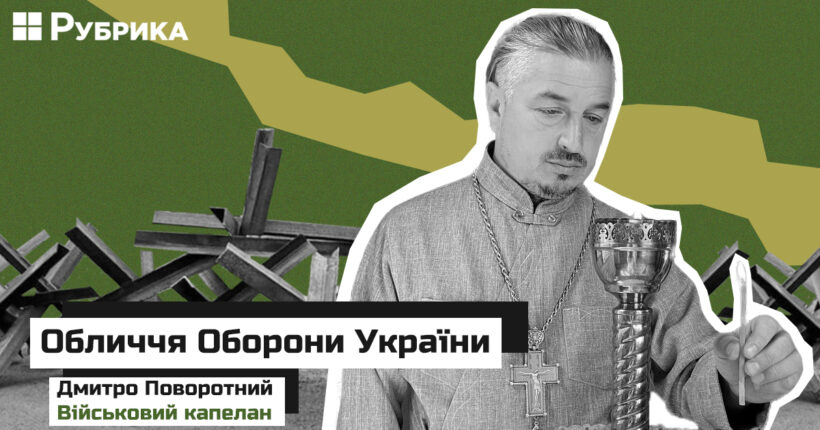
In this article in the Faces of Defense series, we will talk about the prayer that sustains and gives strength to our fighters, how to overcome the hatred of enemies, and whether we should forgive them.
A call to God and coming to Ukrainian church
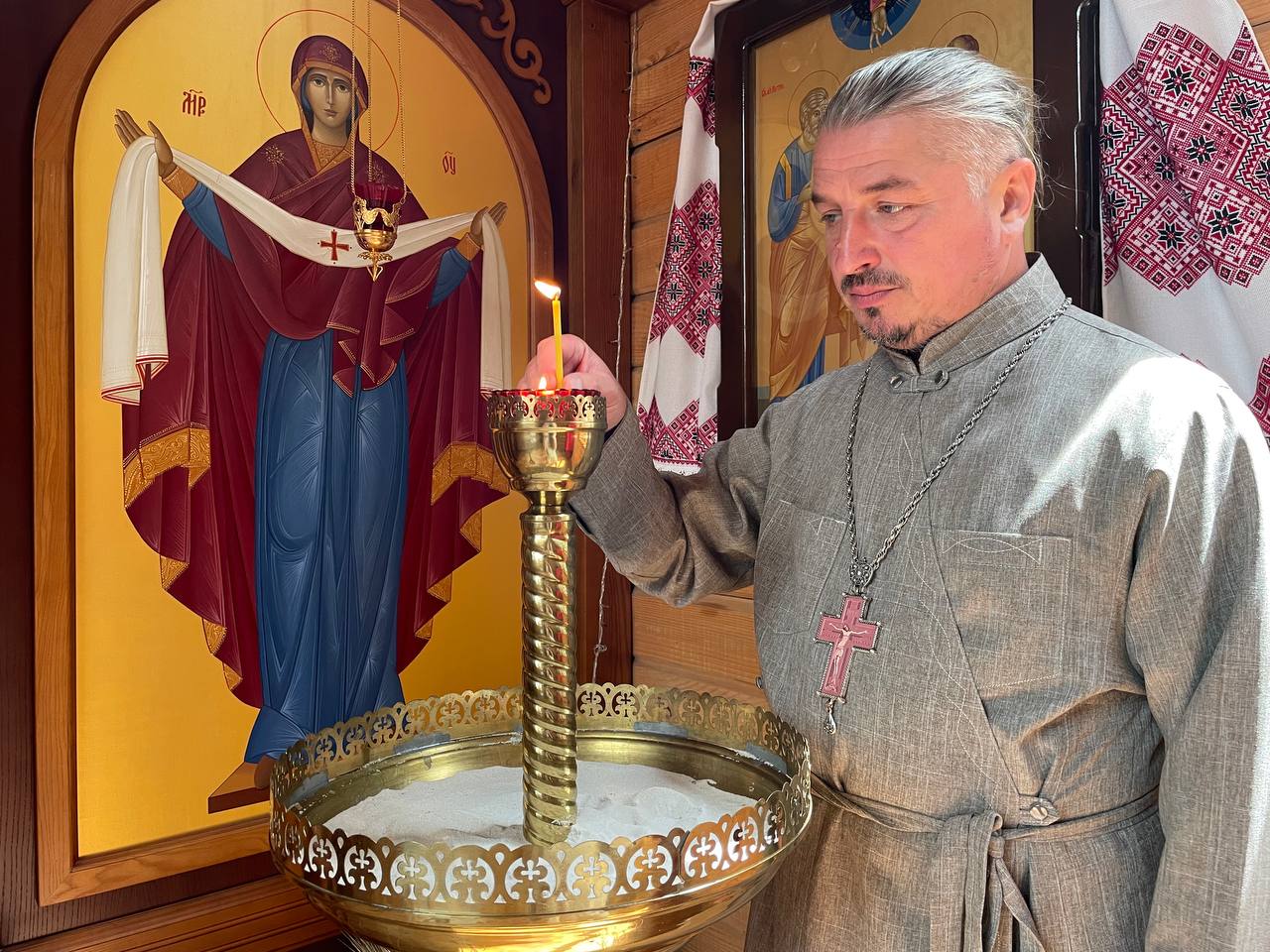
Dmytro Povorotnyi realized that God was speaking to him in the early 2000s. At that time, he was a worldly and not particularly religious person. "The Lord calls everyone throughout life. But we either hear him or don't," says the military chaplain after 20 years.
He went churching in the nearest temple, close to where he lived. St. Nicholas Cathedral of Novy Kodaki in Dnipro belonged to the Moscow Patriarchate [earlier, under the jurisdiction of the Russian Orthodox Church, ed.]; he could find no others. But Dmytro didn't worry about it then because, first of all, he came to the church for God.
After some time, a church leaflet titled "How my Homeland was stolen" appeared on the bulletin board near the church. In the pamphlet, the storyteller said he was a USSR officer, who went to Ukraine for service, and when the union fell apart, he stayed on the territory of our state. "The leaflet said some outlandish state Ukraine appeared after the 'great country USSR'—a state that should not exist, a nation that should not exist. This officer said that there was only one nation divided into several territories," the priest recalls.
Dmytro was aware of himself as a Ukrainian, but he didn't feel the division into "us" and "them" or confrontation between Kyiv and Moscow patriarchies. However, after seeing this letter, he asked himself: "Why is it hanging in the church at all?" The believer sought something else in the temple, not something worldly.
"Why did the church provide a platform for these statements? I started having rejection: I am not a russian, not a little russian, and not a younger brother. I'm a representative of an ancient people, not artificial but natural. That means with God's blessing. So, I can say that then the Moscow Patriarchate made me a patriot—not a radical one, but one that respects its origin and loves its land and people."
The Moscow Patriarchate brought Dmytro to the Kyiv Patriarchate. A little further from the St. Mykolaiv Cathedral, they began to restore the Ukrainian St. Peter and Paul Cathedral. Dmytro became one of the first parishioners.
After leaving the beautiful St. Nicholas cathedral, which never closed, where statutory services were held with the choir, the faithful found themselves in a completely different temple. Only one woman sang in the unfinished building with the plaster crumbling. The service was different from the one he was used to. The service was ascetic and sincere; that's what Dmytro Povorotnyi calls it. In St. Peter and Paul Cathedral, the formation of a man took place—from a parishioner to a priest.
The emergence of a military chaplain
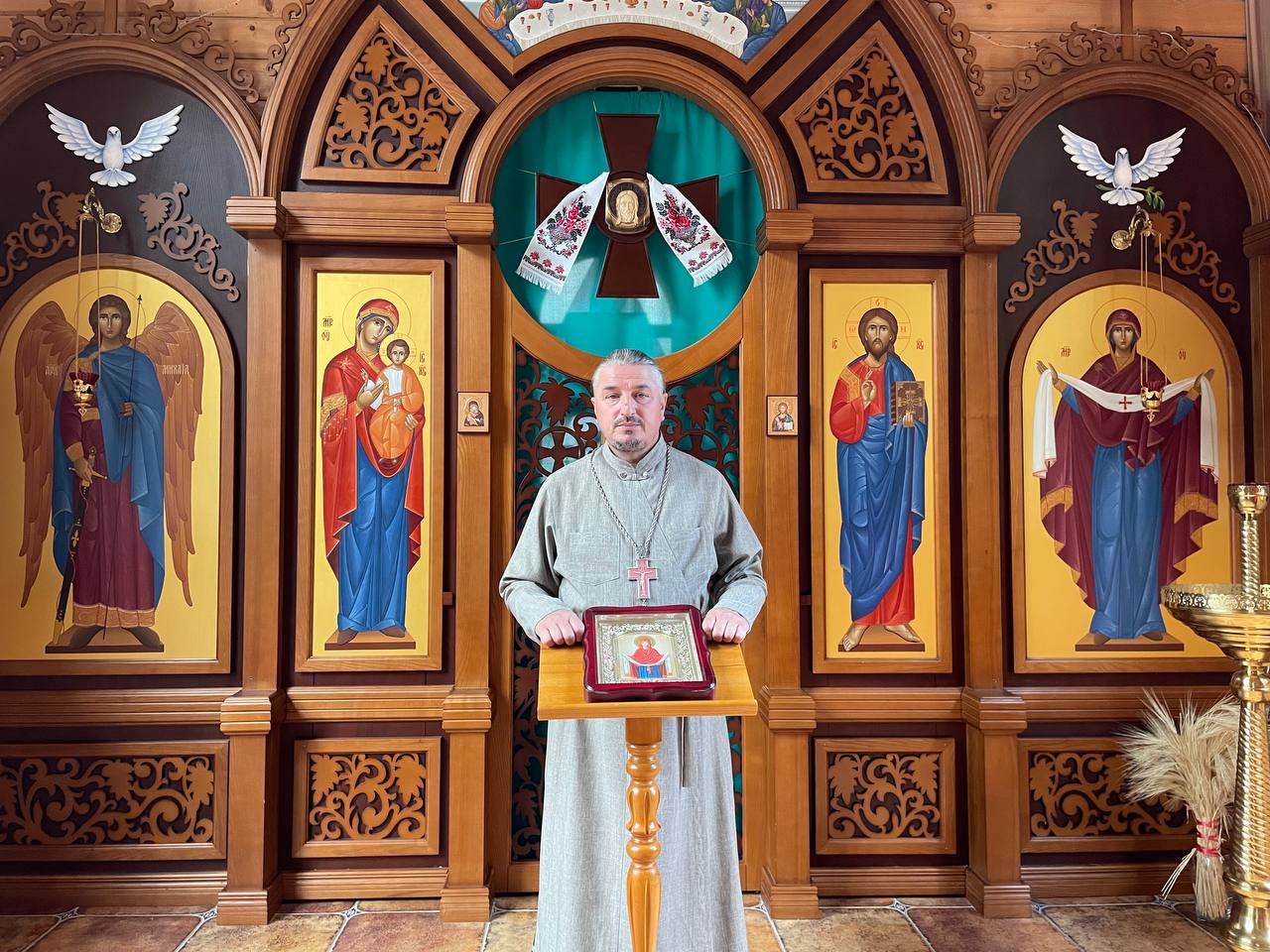
"Do you understand that you can't force it?" Dmytro Povorotnyi was asked by Bishop Simeon of Dnipro and Kryvyi Rih in the spring of 2014.
The war began. russia will not stop with Crimea. Ukrainians will resist.
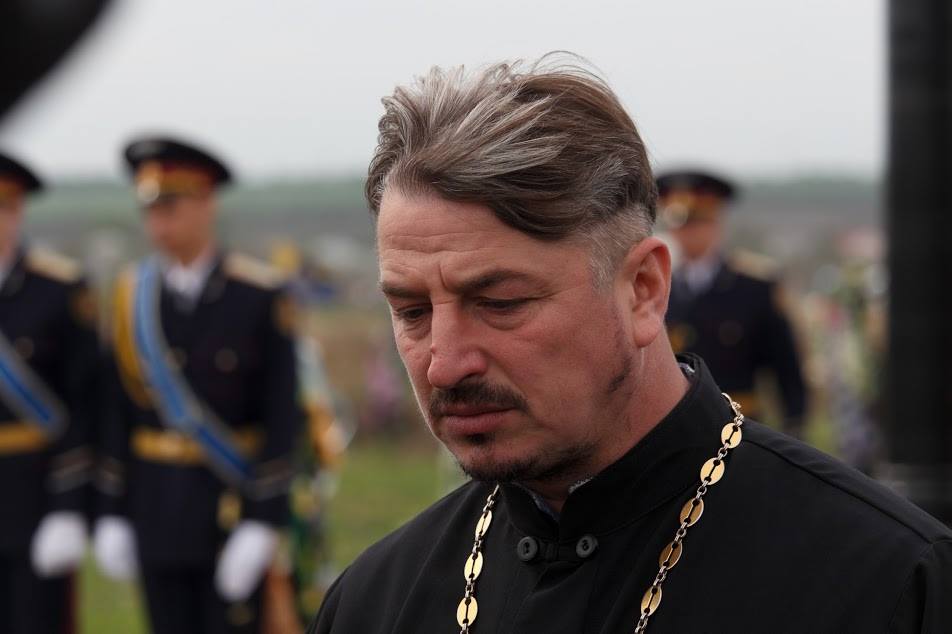
Photo from Dmytro Povorotnyi's Facebook page
Dmytro Povorotnyi understood these simple truths during the annexation of the peninsula. He says he could not sit idle as a man and a Ukrainian, but as a church minister, he couldn't take up arms. The priest had heard of military chaplains before, although he didn't know the details of their work. He decided to try to become a chaplain and received a blessing from the bishop. He asked: "Do you really want this?" And Dmytro answered, "I want it, and I can."
In the past, Dmytro Povorotnyi had already served in the military: he was in the special airborne forces. That's why he boldly went to the Military Commissariat in a priest's cassock.
"There was certain propaganda in Soviet upbringing: we saw ourselves as soldiers. I always dreamed of becoming a paratrooper, so in the future, it came true. Then I realized that I should be careful with my thoughts. I said at the military enlistment office that I had some army experience. But as a priest, I cannot directly participate in hostilities. I can be useful as a spiritual guardian."
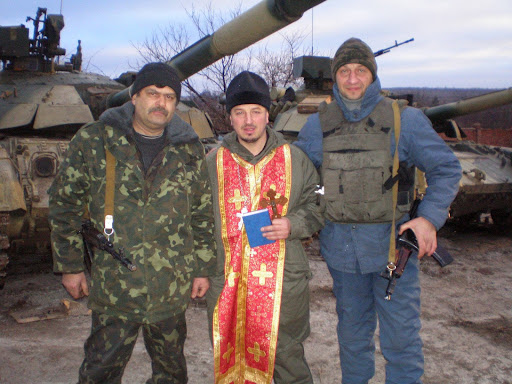
Photo from Dmytro Povorotnyi's Facebook page
The first volunteer formations were created in the spring of 2014. The priest was offered to become a chaplain of the 20th battalion of the Dnipropetrovsk region's territorial defense.
"I asked for mobilization, to be everywhere. So that I didn't have any privileges, and we remained on an equal footing with the boys, sharing the risks."
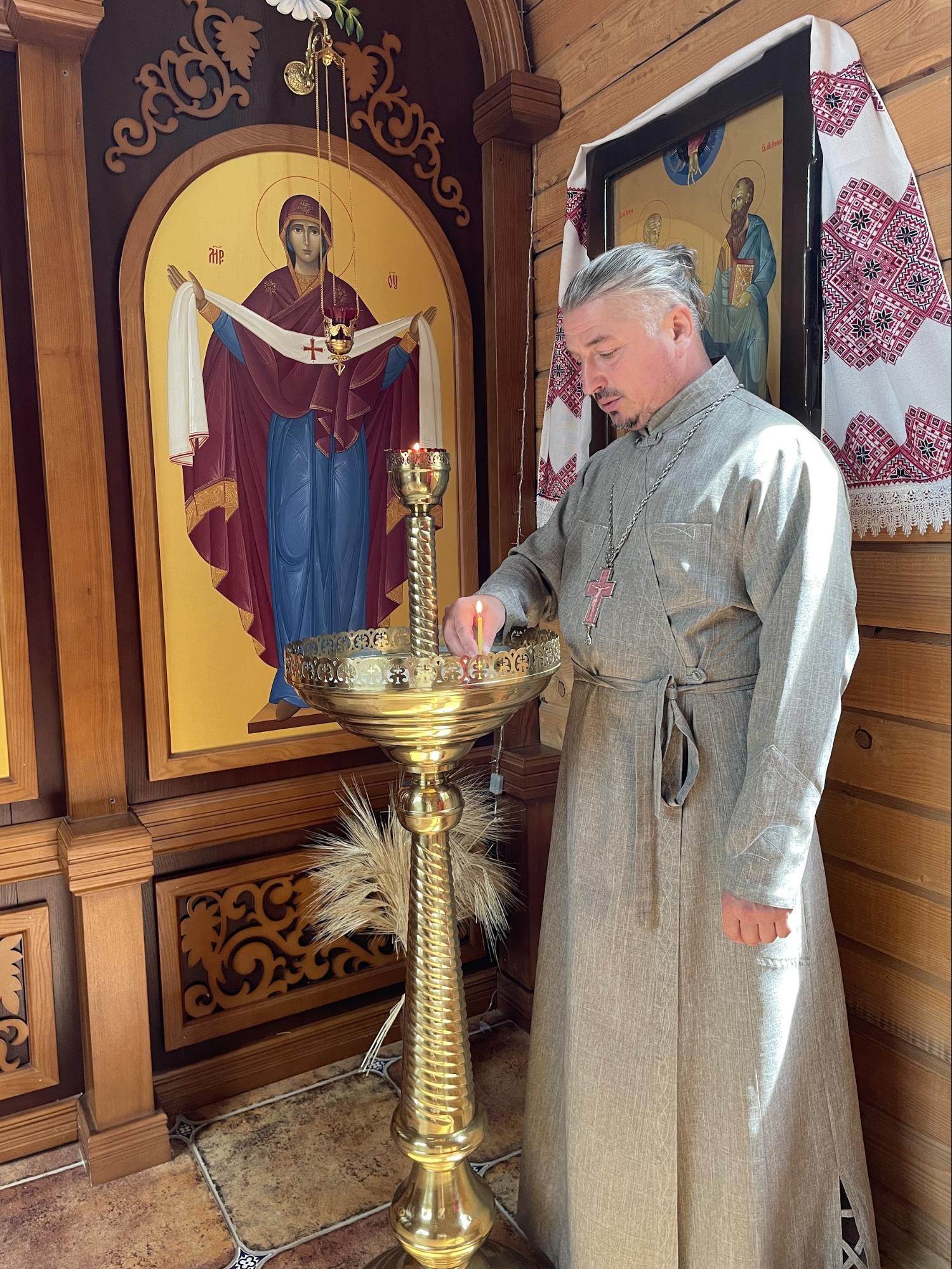
After the meeting, the soldiers were put in transport and taken to the military unit. On the first day in the battalion, Dmytro met the commander. "Are you a chaplain? I was warned about you," he said, and then added:
"I'm glad that we'll have a chaplain. But I have this request: we, especially the entire officer corps here, have decided to defend the motherland. The long-retired returned to the army to fulfill their oath. We will go to the end. If you're not ready, it is better not to start."
"They made me understand that it wasn't fun, but a difficult decision that I have to follow," says Dmytro Povorotnyi.
The first service as a chaplain
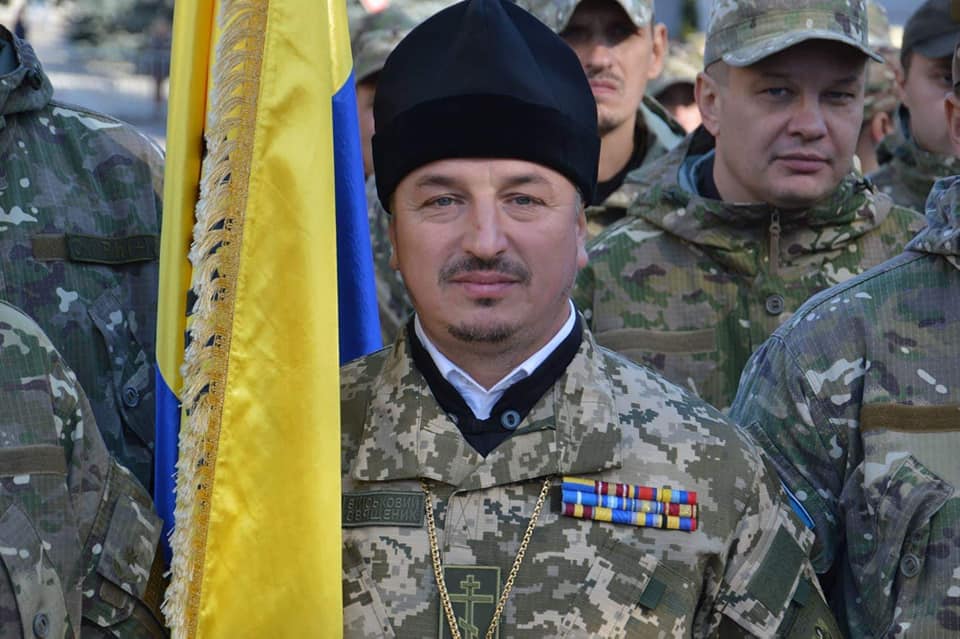
Photo from Dmytro Povorotnyi's Facebook page
At the time of mobilization, the priest was already over 40 years old, with life and church experience behind him. It helped to establish relationships with brothers at the front. For them, Dmytro tried to become what he lacked in the service in his youth.
"The deputy political commissar took care of the morale and atmosphere in the team, but he remained an officer who built his relationships through the prism of this rank. Moreover, I had a negative experience communicating with a deputy political commissar. If there were a chaplain next to me in my youth, it would be easier for me to fulfill my duties."
Dmytro Povorotnyi's work began with communication: he talked about himself, the church, and the church's vision of war and military service. Now the chaplain recalls that many boys and girls didn't have a complete understanding of these processes. "Priests are sitting in the church, removed from all problems and making bucks. But I explained everything."
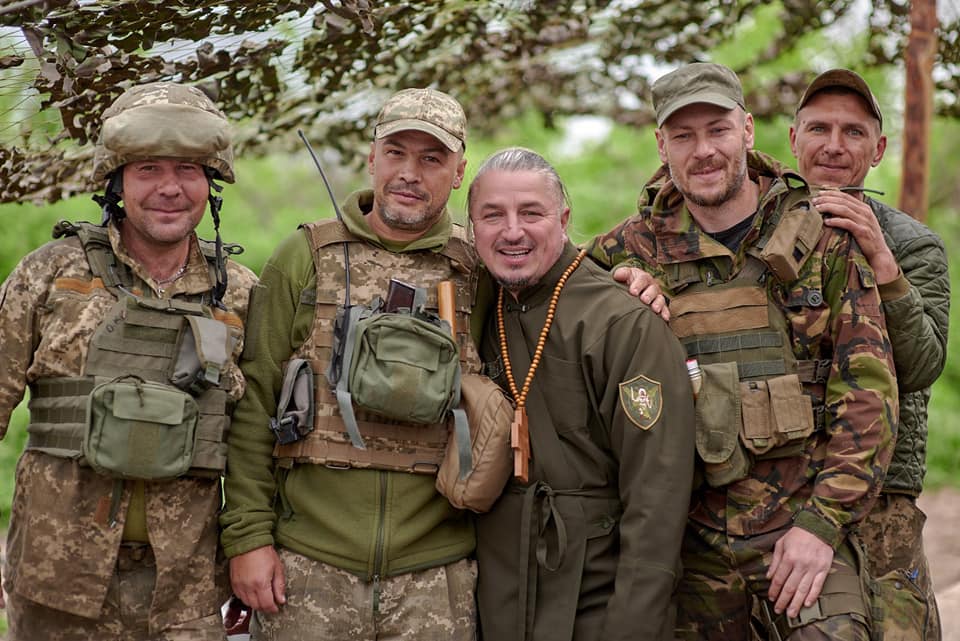
Photo from Dmytro Povorotnyi's Facebook page
Day after day, trust was built between the chaplain and the defenders. It was easier for those fighters who were familiar with church rites: everything done in temples could be now done at the base or positions. But for many, it was the first experience of confession and communion.
Eight years later, Dmytro Povorotnyi remembers his first service as a chaplain. On the eve of May 9, one of the battalion's companies went on a combat mission to Mariupol. Before the trip, everyone lined up, the commander spoke, and the military chaplain was given two minutes. "Please, father, the floor is yours." Dmytro Povorotnyi and his defenders prayed, blessed, and sprinkled with holy water. But when the fighters sat down on the buses, he remembered that he didn't give them to kiss the cross. So he ran between vehicles with a crucifix, offering it to those who needed it.
Not everyone returned from the combat mission. The first fallen heroes of the Dnipropetrovsk region—Oleh Eismant and Serhii Demydenko—will forever be remembered as the defenders of Mariupol. "Other defenders returned after the first fight and said that the blessing was a support for many and kept them from panicking."
Duties of a chaplain
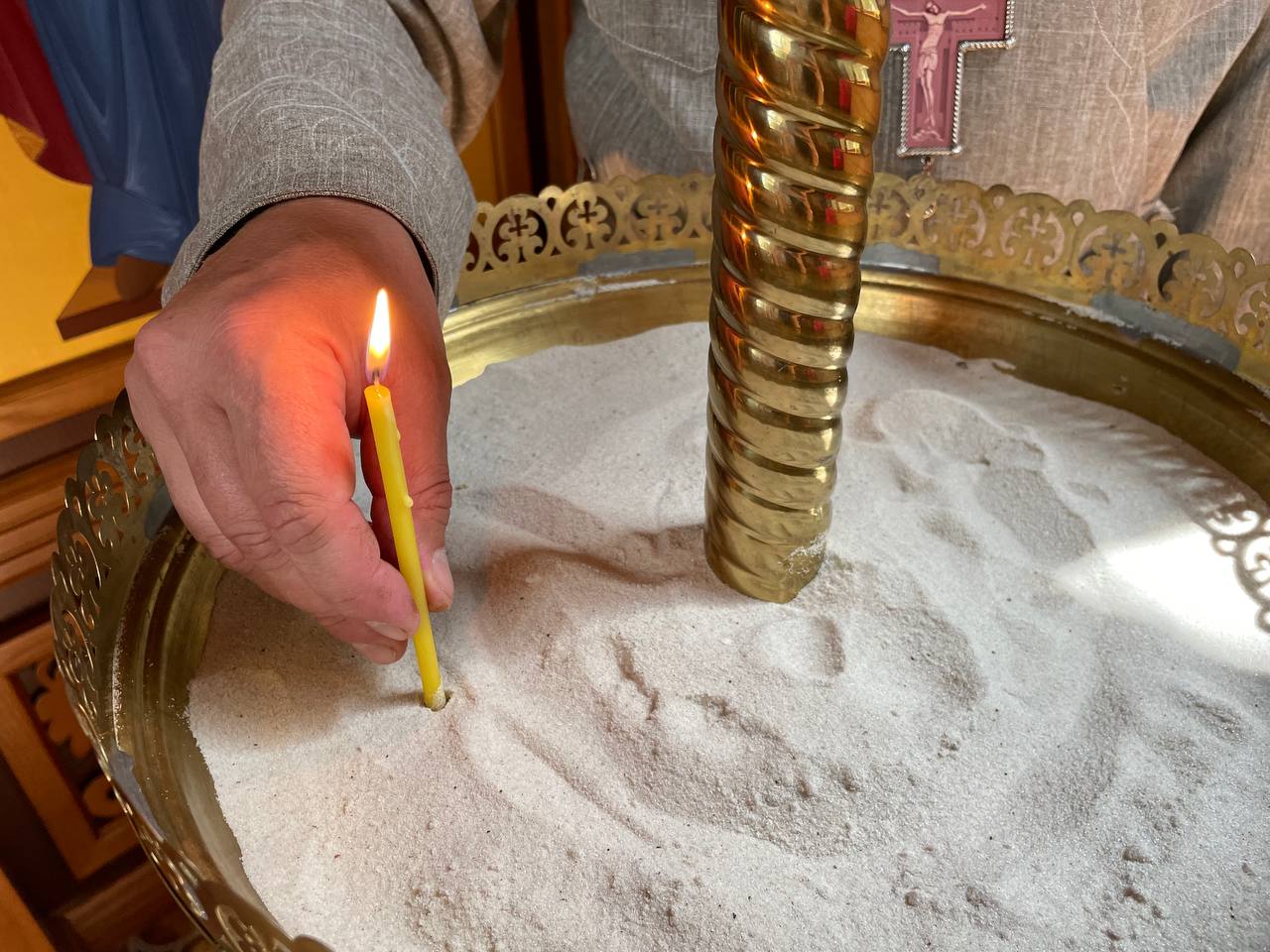
"Many perceive it this way: the soldiers were forcibly driven away, lined up, and the priest is speaking something. But I insist that it should be purely voluntary. It happens that you need to talk to a priest, but tomorrow you don't. Or vice versa," says Dmytro Povorotnyi about his work.
"Shall we go to our positions?" the chaplain heard from the defenders. The priest was always looking for an opportunity to visit his soldiers' positions. The unit could be scattered over a large area, and you wouldn't be able to drive directly to them, so Dmytro, together with volunteers, organized trips. He accepted confessions, and communion and, supported boys and girls, often had humanitarian aid with him—clothes, hygiene products, and food.
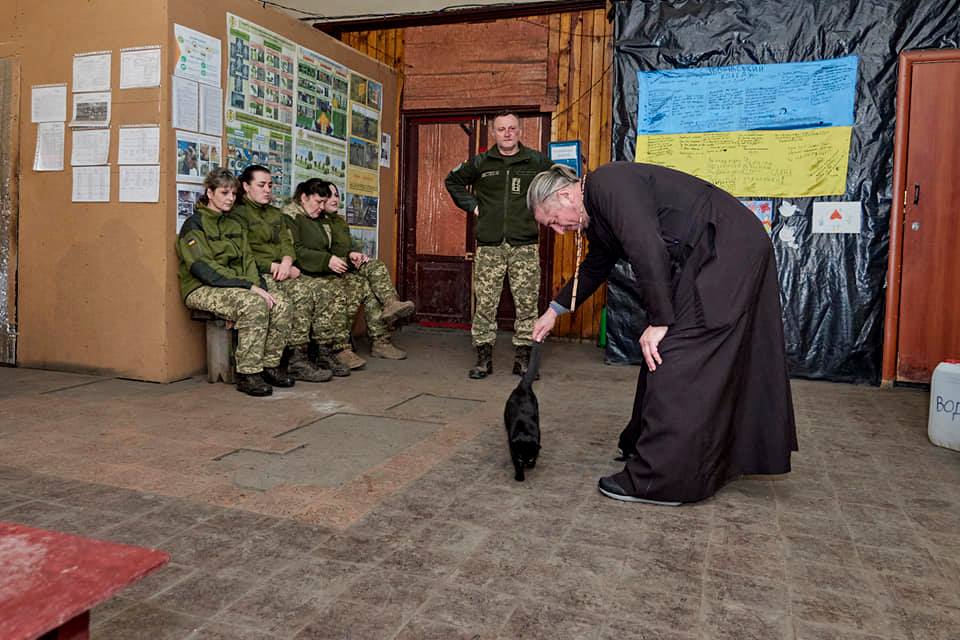
Photo from Dmytro Povorotnyi's Facebook page
"The motto of chaplains is to be there. There are no exceptions—with Christians or representatives of other faiths. We need to be there for everyone, even atheists. One of the main rules of the chaplain's code is to take care of everyone and help implement the constitutional right to religious life."
A person of any faith can turn to the chaplain. The priest finds out the problem and how to help, for example, by bringing a representative of another religious community to the military unit or taking the soldier himself to them.
"I had an experience: a wounded Muslim boy emotionally became depressed because of the treatment. He was confused and bedridden. I arranged with the command to take him to the mosque for Friday prayers. They wrote a resignation letter and left. He prayed there, talked with like-minded people, and remained in an elevated mood for several days. Although he was not very religious in his life, it became easier for him after communicating with people in his circle. A person mustn't feel separated from the community because the military team is a particular space where not everyone gets used to it. This problem can interfere with the performance of official duties."
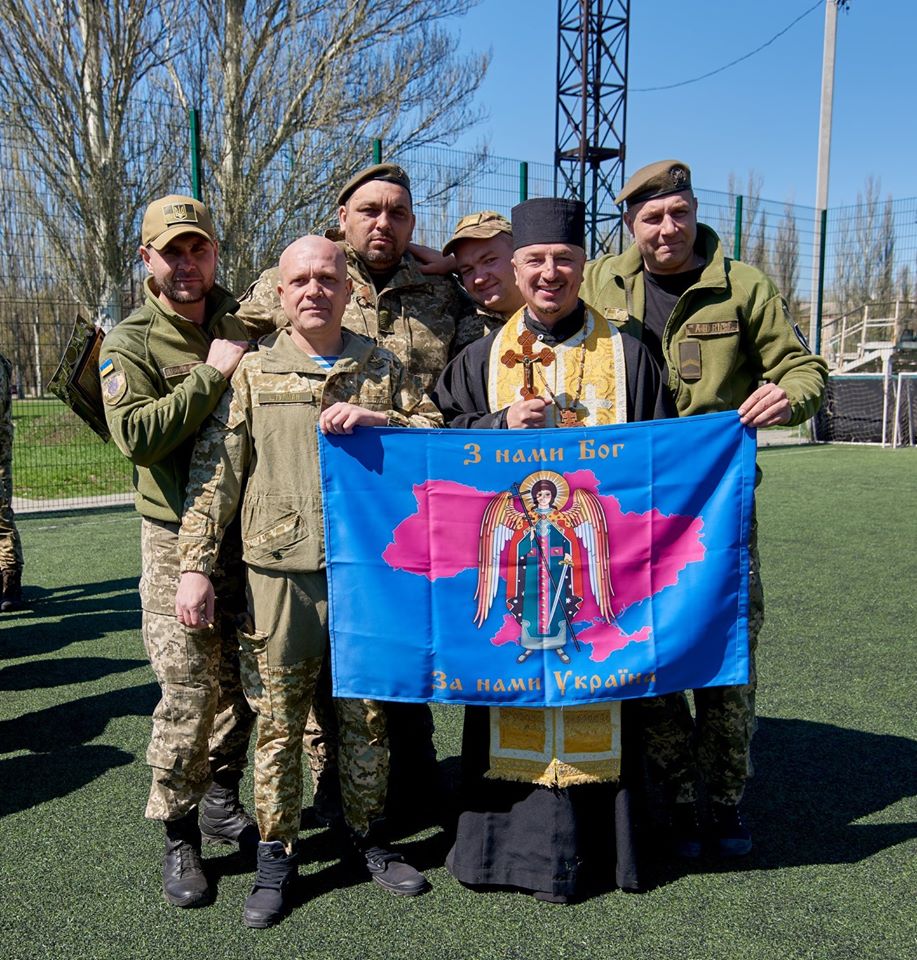
Photo from Dmytro Povorotnyi's Facebook page
The war forces defenders to think about issues that didn't bother them before, says Dmytro Povorotnyi. During his chaplaincy, Dmytro Povorotny baptized 11 defenders. At night, battles continued at the positions, sometimes even hand-to-hand, and the priest baptized people during the day.
"When you get into a trench or a stronghold, you face life and death challenges. Today you are still there, but tomorrow you are not. You walk under bombs, bullets, and attacks. That trouble BEFORE went away. You live in other categories. At this time comes the call of God."
Together with his brothers, Dmytro Povorotnyi came under fire. But, he says, his character helps him not to get scared. He just perceived everything as reality. "It's my job to pray next to the fighters. The main thing is not to interfere with advice. The guys know what to do."
Forgiveness and hatred
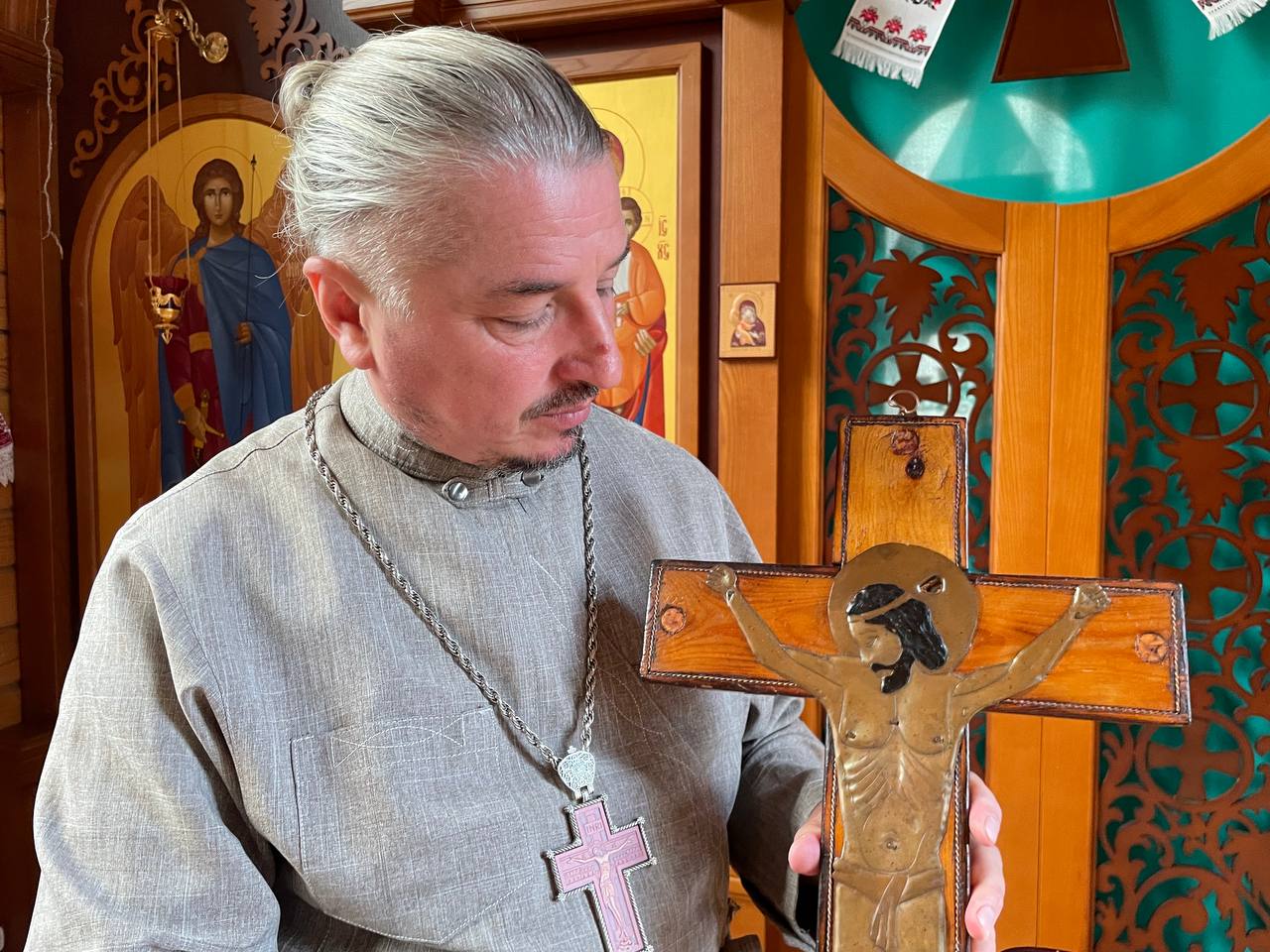
Currently, Dmytro Povorotnyi holds the post of chaplain at the Dnipro military hospital. Duties and tasks are the same as before: to be with our defenders. Due to his civilian position, he can no longer go to the front line. But when he is on vacation, he immediately tries to visit the boys (the day before our conversation, Dmytro had just called on the positions).
We are sitting in one of the temples where the chaplain rules. The sun warms the wooden floors, and the rays through the carved windows rise over the icons and freeze on the pierced crucifix hit by the debris; it was brought to Dnipro by a military chaplain. "There is nothing sacred in war."
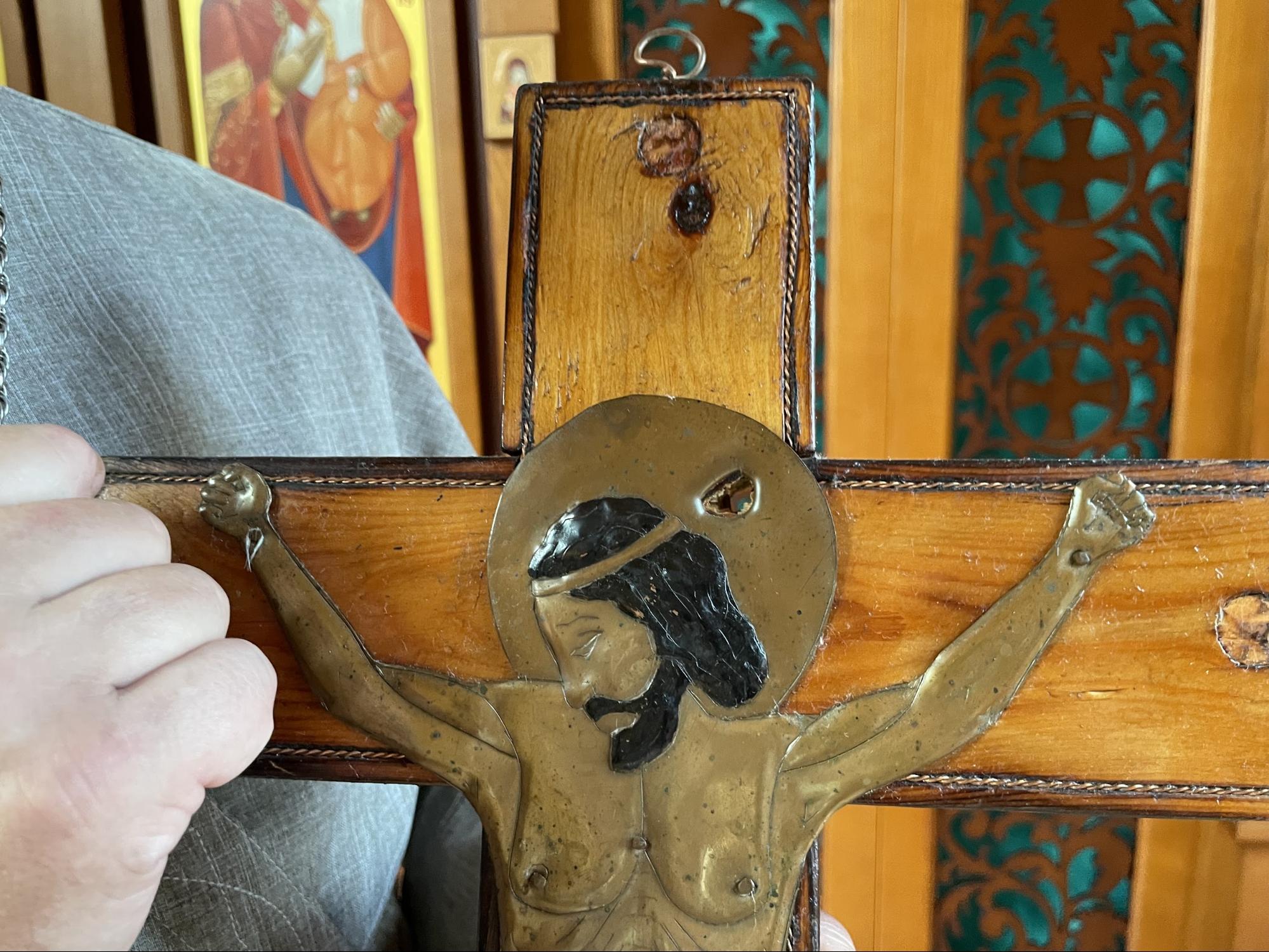
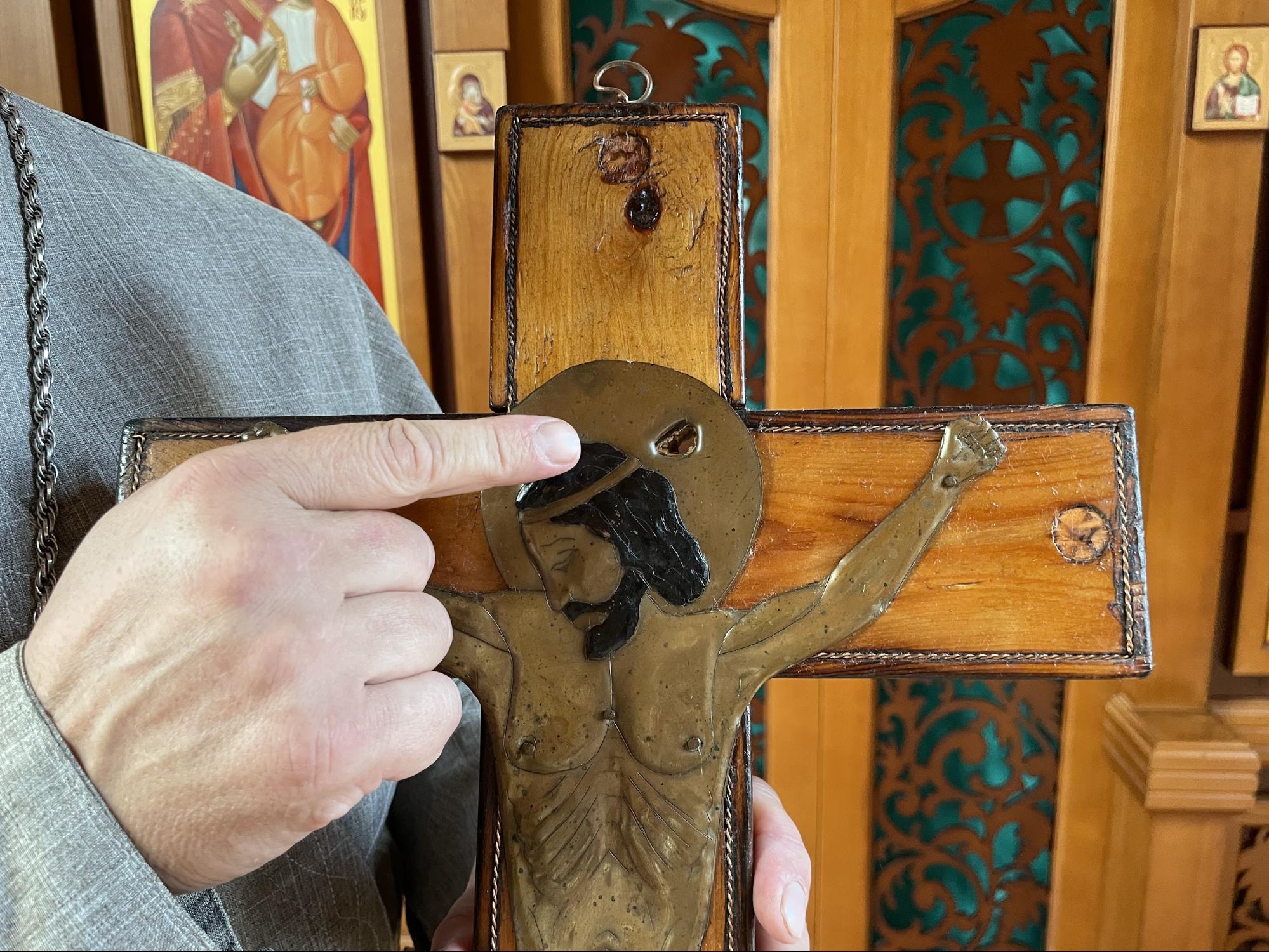
I ask about what's been troubling me for the past five months: do we need to forgive the enemy and what the church says about murders?
Next, we publish direct answers to these questions from Dmytro Povorotnyi:
"The question of forgiveness is a question of a person's spiritual growth. You're a journalist. You didn't become it from the first grade of school. What should you do first? You learn to write hooks, then letters, read poems and short works, study high literature, write essays, and try to express your thoughts. It is the entire path. Religious life is also a constant work. And the issue of forgiveness is not simple. There is simple mathematics, 1+1, and there is higher mathematics with algorithms and integrals. The name seems to be the same, but everything is much more complicated. So, the issue of forgiveness is the aerobatics of spiritual and religious life. You shouldn't demand it from yourself, just like that. It is the path to be gone through. Someone overcomes it better, someone does it worse, and someone doesn't pass at all.
A person has the right to the emotion of hatred. It is not a flaw. It can be for a short time, but the main thing is that it doesn't take over a person entirely because believers understand that only demons live in hatred. Who are the devils? Those who cause us trouble. These are russians. They destroy, rape, kill, and steal.
If we stoop to the level of hatred, we will become like them. Then the russians will win and prove that the Ukrainians are one nation with them. On the contrary, we must exercise righteousness because we see what they do. You shouldn't go to spiritual aerobatics and forgive everyone, but you should start at arm's length. Help the neighbor with whom you don't speak; they also suffer from shelling. Show humanity to those around you, your fellow Ukrainians. Share water and food with those who are sick. Show love.
But how do you deal with the enemy? The enemy must be killed. The ones who came to our land must be destroyed, especially if this person doesn't understand human language. They see the border of Ukraine, which they shouldn't cross with weapons, but they do. We warn: 'You have crossed the line, don't go any further.' And they go further. What to do with them? Ones destroying your land and children must be killed."
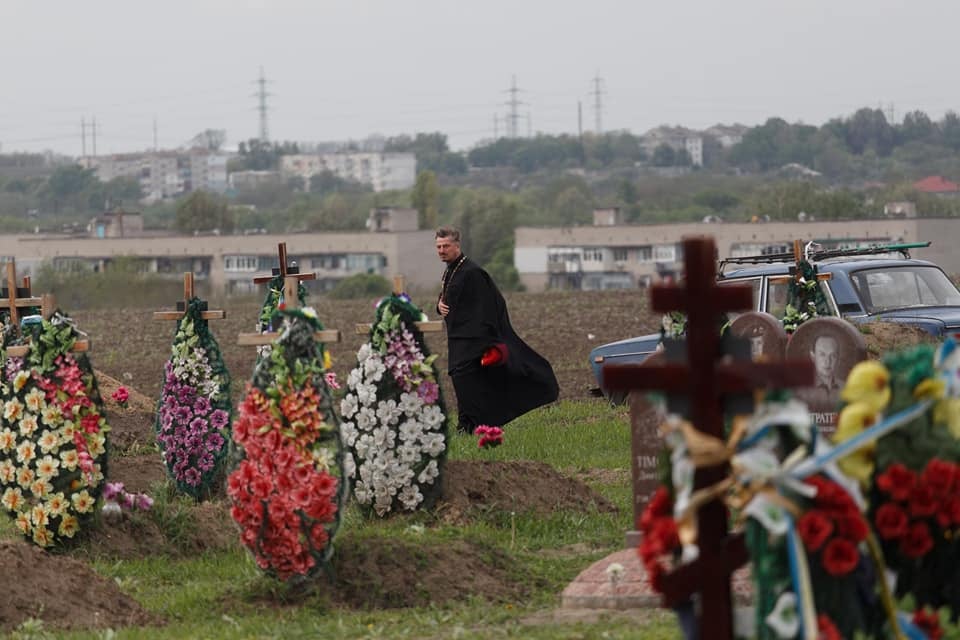
Photo from Dmytro Povorotnyi's Facebook page
For eight years, Ukraine's system of military chaplaincy was built independently. From July 1, 2022, the law regulating the work of clergy members in war entered into force. According to the document, the Military Chaplaincy Service is being formed in the country as a separate structure in the Armed Forces of Ukraine and other military and law enforcement formations (one chaplain per battalion).
Newsletter
Digest of the most interesting news: just about the main thing



